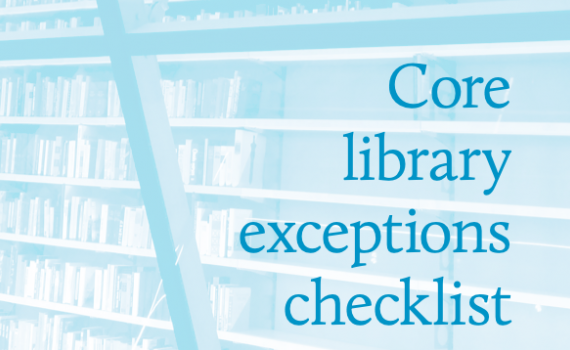
Senegal adopted its current Copyright Act in 2008. EIFL’s review of the law shows that it contains a rather limited set of exceptions, and there are no specific exceptions for libraries (meaning that libraries must rely on these other provisions for core activities, such as making preservation copies or copies for users, which might not allow digital copies). Other issues such as making accessible format copies for people with disabilities, using orphan works (where the rightsowner cannot be found) and web archiving (saving websites before they disappear) are also not accommodated.
As a result, the Copyright Act scores a low 11 points (out of a possible 36) in EIFL’s checklist of core exceptions that every copyright law should have to clearly support modern library activities and services. (In contrast, Nigeria’s new Copyright Act achieves a near perfect score on EIFL’s checklist).
The review explains library activities permitted under the 2008 Act, and makes suggestions for how the law might be amended to accommodate activities in the digital environment in support of education, research and innovation. It is in four parts. Part 1 is a brief summary of the key provisions for libraries in the Copyright Act, 2008; part 2 evaluates the Copyright Act, 2008 against the EIFL Core Library Exceptions Checklist; part 3 is a legal analysis of the provisions related to libraries and library activities, and part 4 is the text of library-related provisions in the Nigeria Copyright Act, 2022 that Senegal might consider adopting.
It can be used by the local library community, policymakers and legal practitioners to raise awareness of what the law means for libraries and library activities in Senegal, and we hope that it will lead to improvements to bring Senegal’s law up-to-date with copyright law developments in Africa and other parts of the world.
The review is available in English and French, and it is published in collaboration with Consortium des Bibliothèques de l’Enseignement Supérieur du Sénégal (COBESS), EIFL’s partner in Senegal, as part of the project ‘Contributing to Public Interest Copyright Policy in Senegal and at WIPO: Promoting Access to Knowledge and the Right to Research’.
Read the review
SHARE / PRINT









